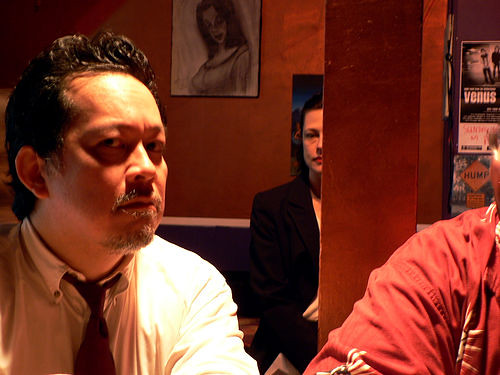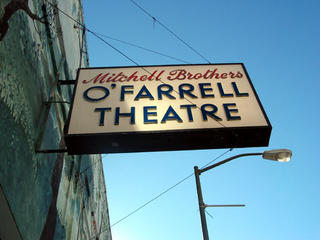
My Cousin Louie had a dream too. “Make your enemies eat their own
suka,” he advised me shortly after I first met him.
Suka meant vomit in Tagalog. Later, Cousin Louie would explain what you had to
do to make your enemies vomit.
I hadn’t asked him for advice on this or anything else, for that matter, but somehow he recognized that I was a man in need of guidance. That I was in need of a few tips on how to make it in the world…
Cousin Louie said he came to America last Friday. Stepping off the plane and onto American soil for the first time, Cousin Louie kissed the ground, then reached up to place his hand on the shoulder of a woman from Montana who’d been on the plane with him.
“This is America!” he exclaimed. “This is the tits, man! The real shit!”
The woman, whose name was Faye, looked down at Cousin Louie. At four foot ten, Cousin Louie was about a foot shorter than this tall Western woman who had a figure like a long neck bottle of Budweiser. And though Cousin Louie was forty-five years old, he had the voice and build of a teenage boy. How else could she respond to his crude exclamation except to say, “You need to watch your language, young man!” And, “Where is your mother?”
“My Mama’s back home, babe.”
“In Hawaii?”
“No, in the Philippines, babe. This plane we just got out of started in Manila, babe. We only stopped in Hawaii to pick your big butt up.” Cousin Louie paused a moment, then asked, in a mock Southern accent, “Wanna get a brewski?”
Faye clutched her purse close to where the words “King of Beers” would have appeared on her body, then rushed ahead without either another question or another command to Cousin Louie.
“Pray I don’t waste you, motherfucker!” Cousin Louie shouted after her. Although Cousin Louie understood English fairly well, this was one expression he didn’t understand at all—which didn’t keep him from uttering it confidently every chance he got. It was something about the sound of the word “motherfucker.” Surely there was no word in the English language more beautiful than “motherfucker.”
Cousin Louie’s first stop there in San Francisco was the Golden Gate Bridge. Despite the exhilaration he showed on the surface, Cousin Louie had been sad of late. And when he stepped on that plane headed for California, San Francisco, U.S.A., the words that kept going through his head were, “I’ve had it with this shit.”
Taking a cab into town from San Francisco International Airport, Cousin Louie got off at the entrance to the Presidio, then walked. As he walked he opened the one bag he’d carried with him and pulled out a tiny bottle of Jack Daniels that he’d saved from the flight. Unscrewing the top, he turned the bottle upside down into his mouth. In a second the bottle was empty. Staring straight ahead towards the Golden Gate Bridge, Cousin Louie tossed the bottle onto the grass and wiped his mouth.
Cousin Louie had made it halfway across the bridge when he laid down his bag. Grabbing onto the railing, he started to hoist himself up but then stopped. Gazing out to the West, towards what was once home, a look of disgust came over his face.
“Fuck this shit!” he yelled. He stepped back down. After looking from side to side, he unzipped his pants.
Cousin Louie took aim, then let it go. Adjusting the angle, his piss went over the edge of the bridge.
“I say WHOOAAA!” he sang. “I say whoo-ooo-OOO-eeee. I say all RIIIIIGHT!”
Then he kept quiet to see if he could hear it hit the water. He listened closely until he heard something.
“That’s it!” he yelled finally. “That’s me, motherfucker! That’s me!”
Cousin Louie had just now, at the age of forty-five, left everything behind. His career, his wife, his eleven children. The only man in our family to get rich, he nevertheless had gotten tired of being a big fish in a little pond, a big island among little islands, a great sinner among lesser saints.
“Sorry, baby,” he mumbled as he zipped up his pants.
Cousin Louie started walking again when he realized he was heading north.
“Oh man, that would suck,” he mumbled. “Wine country my fucking ass!”
He turned around and headed back south toward San Francisco. Once he got off the bridge he hailed the first cab he saw.
“895 O’Farrell Street,” he commanded.
The driver, a middle-aged white guy with a beer gut, shifted his shoulders until he was facing Cousin Louie. He looked Louie over and smirked until his chubby right cheek turned red.
“What’s your problem, Buddy?” Louie asked. “Don’t you know where that is?”
“Yes, I know where that is. I just don’t think that’s the sort of place you should be going.”
“Quit grinning like an idiot, Buddy!” Louie yelled. “I’m forty-five fucking years old and if I wanna go someplace I’m gonna go whether it’s good for me or not.”
Louie pulled a hundred dollar bill from his pocket and waved it in front of the driver’s face.
“This looks like a hundred dollars to you, but to me it ain’t nothing but small change, motherfucker. Do as I say and I’ll scratch your back with it, Buddy.”
It took him a minute, but finally the driver understood. Soon he was pulling up in front of the O’Farrell Theatre. Louie gave the driver a hundred dollar bill, then pulled a five hundred dollar bill from his wallet.
“If you’re still out here when I come out, I’ll give you this.” Louie held up the five hundred dollar bill. “You can depend on me, Big Buddy. Show me that I can depend on you.”
At the door of the O’Farrell Louie had to show his international driver’s license to the doorman, who eyed it closely and rubbed it between his fingers.
“It’s the real thing, Joe,” Louie said, gazing up confidently at the doorman. Louie then pulled his license from doorman’s hand and replaced it with a hundred dollar bill. “Just show me the way in, Joe. Everything’s fucking cool.”
The doorman looked down at Louie and shrugged his shoulders. Then holding open the door, he showed Louie inside.
“Everything’s cool,” the doorman said loudly to the bouncer and waitress who were standing inside by the entrance. “He just looks young.”
“That’s right, Joe,” Louie said.
Looking directly into the doorman’s eyes, Louie flashed a smile. ”Just pray I don’t waste you, motherfucker!” It was only when Louie smiled that you got a sense that he was a lot older than he looked.
Louie made his way through the O’Farrell Theatre, checking out the dancers on the main stage, in the Ultra Room, in the Kopenhagen Lounge. Two hours later, when Louie finally left—with a tall blonde dancer holding tightly onto his arm—he looked ahead to see that Larry, the taxi driver, was waiting for him, ready to take him wherever he wanted to go.
Excerpt from a novel in progress
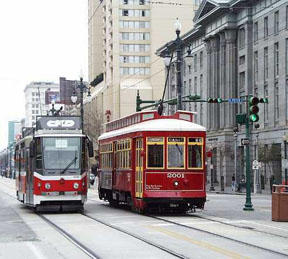
 At the end of another drunken week
At the end of another drunken week Well, it's not that much further south, but we're probably going to want to buy a Chevy pickup truck with a gun rack, and I'm probably gonna have to grow a mullet, and Norris is gonna have to start going by two names so that she's called 'Norris Renee,' and Kate is gonna have to chew tobacco and call us Paw and Maw and wear halter tops. All that so that the neighbors don't harass us all the time and piss on our lawn and throw turds at us because they think we're Commies.
Well, it's not that much further south, but we're probably going to want to buy a Chevy pickup truck with a gun rack, and I'm probably gonna have to grow a mullet, and Norris is gonna have to start going by two names so that she's called 'Norris Renee,' and Kate is gonna have to chew tobacco and call us Paw and Maw and wear halter tops. All that so that the neighbors don't harass us all the time and piss on our lawn and throw turds at us because they think we're Commies.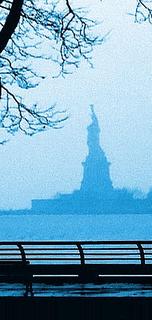 Like a having a dog hump your leg, it felt odd at first, having this stranger touch me. But in an instant I found myself detached from what was really happening, imagining that I was watching myself from a distance like an actress watching a movie in which she is the star, an actress performing a scene in which she is having an affair with a married man who is no longer attracted to his wife.
Like a having a dog hump your leg, it felt odd at first, having this stranger touch me. But in an instant I found myself detached from what was really happening, imagining that I was watching myself from a distance like an actress watching a movie in which she is the star, an actress performing a scene in which she is having an affair with a married man who is no longer attracted to his wife.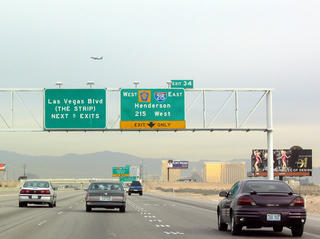 Larry was impressed, and halfway to Las Vegas he was still checking his rear view mirror every ten minutes. Sometimes he’d see Cousin Louie with his hand inside Amber’s blouse. Amber, who an hour after meeting Louie had become his fiancee. Sometimes Larry would catch a glimpse of one of Amber’s nipples, or get a whiff of her perfume.
Larry was impressed, and halfway to Las Vegas he was still checking his rear view mirror every ten minutes. Sometimes he’d see Cousin Louie with his hand inside Amber’s blouse. Amber, who an hour after meeting Louie had become his fiancee. Sometimes Larry would catch a glimpse of one of Amber’s nipples, or get a whiff of her perfume.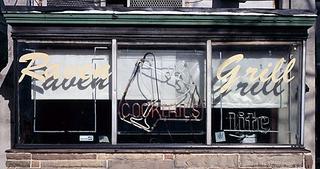 It’s four o’clock on a bright and sunny Tuesday afternoon in 1999 and I’m drunk again. I don’t usually like sunny days, especially in the spring right after they go back to daylight savings time. Sunlight tends to make everything look ugly, and to tack on an extra hour of it in the spring is like putting your eye up to a microscope to take in all the ugly details you usually miss. Besides, I don’t trust sunlight. Because whenever someone proposes to “shed some light” on a subject, that person’s usually a liar.
It’s four o’clock on a bright and sunny Tuesday afternoon in 1999 and I’m drunk again. I don’t usually like sunny days, especially in the spring right after they go back to daylight savings time. Sunlight tends to make everything look ugly, and to tack on an extra hour of it in the spring is like putting your eye up to a microscope to take in all the ugly details you usually miss. Besides, I don’t trust sunlight. Because whenever someone proposes to “shed some light” on a subject, that person’s usually a liar.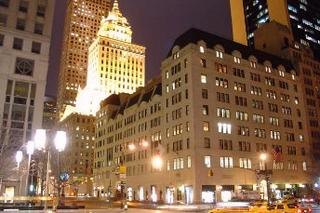 I started out the 90s by leaving my job at the Library of Congress in Washington, my home town, and moving up to New York. To the big time, where I got a job writing for one of those so-called alternative weeklies. I wrote “slice-of-life” stories—stories that usually involved me getting stinking drunk at some bar and getting into arguments and fistfights before finally being kicked out. One might not think so, but it was a formula which lent itself well to about a thousand variations. I never got to do that thousandth variation, though, because after about a year the editors decided that what I was writing about wasn’t cool. Or at any rate, that it wasn’t cool for me to be writing about it.
I started out the 90s by leaving my job at the Library of Congress in Washington, my home town, and moving up to New York. To the big time, where I got a job writing for one of those so-called alternative weeklies. I wrote “slice-of-life” stories—stories that usually involved me getting stinking drunk at some bar and getting into arguments and fistfights before finally being kicked out. One might not think so, but it was a formula which lent itself well to about a thousand variations. I never got to do that thousandth variation, though, because after about a year the editors decided that what I was writing about wasn’t cool. Or at any rate, that it wasn’t cool for me to be writing about it. My Cousin Louie had a dream too. “Make your enemies eat their own suka,” he advised me shortly after I first met him. Suka meant vomit in Tagalog. Later, Cousin Louie would explain what you had to do to make your enemies vomit.
My Cousin Louie had a dream too. “Make your enemies eat their own suka,” he advised me shortly after I first met him. Suka meant vomit in Tagalog. Later, Cousin Louie would explain what you had to do to make your enemies vomit.